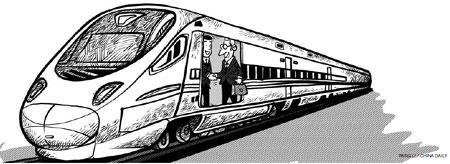China pivotal to Australia's success

Nearly half a century ago, Geoffrey Blainey's The Tyranny of Distance argued that Australia's geographic position shaped Australians' psychological attitudes. The long distance between Australia and its colonial forebears in Europe, and also the United States, made Australians unsure of their future economic prosperity.
Around the time Blainey was writing, Donald Horne's The Lucky Country described a resource-rich Australia that lacked intellectual confidence and the capacity to make the most of its natural endowments. Horne said a reluctance to engage with Asia would harm Australia politically, socially and eventually economically. Noting this reluctance, Singapore's former prime minister Lee Kuan Yew famously warned that Australia risked becoming the "poor white trash of Asia" and advised that vast natural mineral wealth was neither necessary nor sufficient for long-term prosperity.
In these years, however, Japan had already succeeded the United Kingdom as Australia's major trading partner, and the Australian economy had begun its long journey toward greater engagement with the Asia-Pacific region. In 1957, just 12 years after the end of World War II, John McEwen, then Australian trade minister, signed a commercial agreement with Japan. This agreement gave Australia a "beachhead" in Asia, and launched the Australian tradition of bipartisan support for increased trade engagement with the region.















